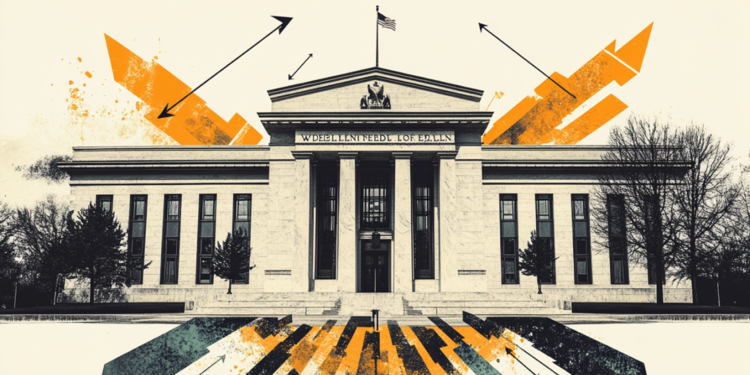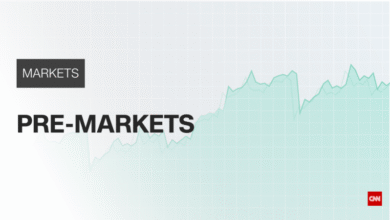Fed Independence: Austan Goolsbee’s Key Insights

Fed independence plays a critical role in shaping the economic landscape of the United States, yet it finds itself at the heart of heated political debate. Recently, Chicago Federal Reserve Bank President Austan Goolsbee warned against undermining the central bank’s autonomy amid President Donald Trump’s mounting criticism of Chair Jerome Powell. In a climate where monetary policy decisions could sway interest rates significantly, maintaining this independence is essential for achieving long-term inflation targets. Goolsbee’s insights emphasize that interference in the Federal Reserve’s functions could lead to detrimental outcomes, including higher inflation and diminished economic growth. With voices like Trump’s calling for changes at the helm, understanding the stakes of Fed independence has never been more urgent.
The autonomy of the Federal Reserve is pivotal for the U.S. economy, often referred to in discussions about the central bank’s ability to operate free from political pressures. Recently, notable figures, such as Austan Goolsbee, have cautioned that any attempt to interfere with its independence could compromise effective monetary policy. Critics, including President Donald Trump, have raised concerns about interest rate decisions made by Chair Jerome Powell, arguing that such choices directly impact inflation and economic stability. As the conversation surrounding the central bank’s authority heats up, it’s vital to recognize the significance of preserving its operational freedom to ensure sound economic growth and low unemployment. The debate over Fed independence remains a crucial topic as policymakers and economists work to balance governance with the impersonal needs of a fluctuating economy.
The Importance of Fed Independence in Monetary Policy
Fed independence serves as a cornerstone of effective monetary policy, ensuring that decisions regarding interest rates and inflation targets are made based on economic data rather than political pressures. Austan Goolsbee, President of the Chicago Federal Reserve Bank, emphasized this criticality in his recent remarks, asserting that maintaining distance from political influence is essential for sustaining public confidence in the federal system. When the central bank operates without undue interference, it can focus on its dual mandate: promoting maximum employment and stabilizing prices.
The consequences of undermining Fed independence can be severe. Historical evidence shows that nations lacking a strong independent monetary authority experience elevated inflation and diminished economic growth. For instance, countries susceptible to political meddling often struggle with fluctuating interest rates, which can lead to increased unemployment and economic uncertainty. Goolsbee’s cautionary insights reflect a broader consensus among economists that maintaining a distinct separation between monetary policy and government agendas enhances financial stability and fosters long-term prosperity.
Frequently Asked Questions
What is Fed independence and why is it important?
Fed independence refers to the ability of the Federal Reserve to operate without political interference, which is crucial for effective monetary policy. As Austan Goolsbee emphasized, maintaining this independence helps manage inflation expectations and ensures better economic outcomes, reducing inflation, promoting growth, and keeping unemployment low.
How does Fed independence affect interest rates?
The independence of the Federal Reserve plays a vital role in determining interest rates. When the Fed is free from political pressures, it can make data-driven decisions to adjust rates appropriately, as noted by Jerome Powell. Political interference, as suggested by President Donald Trump, can lead to misguided decisions that hinder economic stability.
What are the risks of undermining Fed independence?
Undermining Fed independence can lead to adverse economic consequences, including higher inflation and slower growth, as warned by Austan Goolsbee. History shows that in countries where central banks lack independence, the economy suffers, leading to persistent unemployment and destabilized financial markets.
How do politicians influence monetary policy and Fed independence?
Politicians, including President Donald Trump, can influence monetary policy discussions, as evidenced by attempts to criticize or control Fed actions. Legislative moves to appoint alternative figures, such as a ‘shadow chair’, could compromise Fed independence, disrupting its ability to set interest rates effectively and manage inflation.
What happens to inflation when Fed independence is compromised?
When Fed independence is compromised, inflation typically rises, as political leaders may pressure the Fed to keep interest rates low to stimulate short-term growth. Austan Goolsbee highlighted that this short-sighted approach can lead to long-term economic issues, making it crucial for the Fed to remain independent to maintain its inflation targets.
What have historical examples shown about Fed independence and economic performance?
Historical evidence suggests that countries with compromised central bank independence face higher inflation rates, increased unemployment, and weak economic growth. Economists, including Austan Goolsbee, agree that maintaining Fed independence is essential for sustainable economic performance and stability.
How has Fed independence been a topic during Trump’s presidency?
During President Trump’s presidency, Fed independence became a contentious issue, especially as he publicly criticized Jerome Powell for not lowering interest rates. His remarks reflect a broader concern that political pressures can undermine the Fed’s crucial role in setting monetary policy free from outside influence.
| Key Point | Details |
|---|---|
| Fed Independence | Central to maintaining low inflation and economic stability; interference can lead to negative outcomes. |
| Austan Goolsbee’s Warning | Criticism of Fed leadership can undermine confidence in the Fed’s ability to manage inflation. |
| Trump’s Criticism | Calls for lower interest rates and has suggested ways to exert influence over the Fed. |
| Consequences of Interference | Higher inflation, poorer economic growth, and increased unemployment as necessary actions are delayed. |
| Legal Standing of Fed Chair | Chair Jerome Powell plans to serve his full term despite pressures from the administration. |
| Comparison with Other Countries | Lack of Fed independence correlates with higher inflation and poorer economic indicators. |
Summary
Fed independence is essential for maintaining economic stability and controlling inflation. The warnings from Chicago Federal Reserve Bank President Austan Goolsbee highlight the risks of undermining the central bank’s autonomy amidst political pressures, such as those from former President Trump. The discussion underscores that interference in the Fed’s operations could lead to negative economic consequences, including higher inflation and increased unemployment. As history demonstrates, countries without a strong independent central bank face greater economic challenges, further emphasizing the importance of preserving the Fed’s independence.




